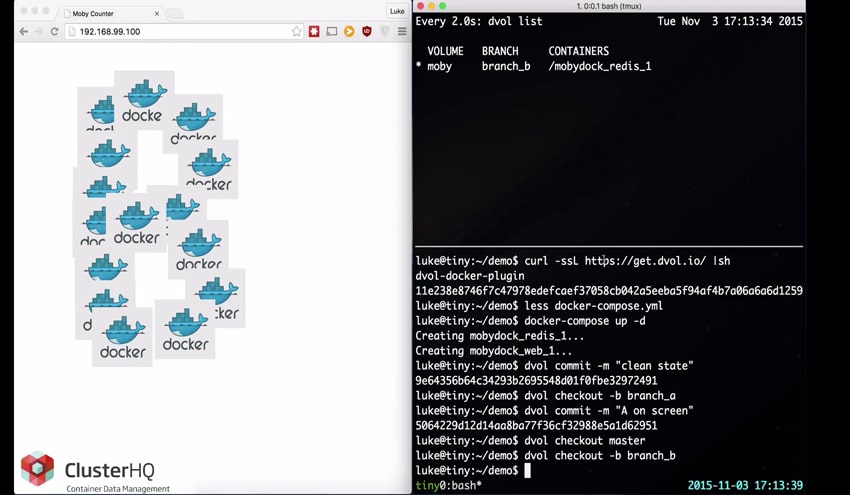
ClusterHQ has made several announcements recently including the release of two new solutions, dvol, a CLI providing Git-like functionality for data and the ClusterHQ Volume Hub, both of which are designed to manage stateful microservices all the way from development to production. ClusterHQ indicates that their new solutions will address various challenges DevOps teams face as they have the ability to better assist Docker users looking to test, build and run stateful container-based applications. As a result, developers and operations teams can expand their resources for testing and managing containerized applications. This will allow users at any level to seamlessly manage their data in containers from devices like a laptop.
ClusterHQ’s Volume Hub is a Software as a Service management system that gives users a catalogue of all the data volumes in a Flocker cluster via a user-friendly and effective way, allowing for more efficient container data management. With it, problematic data volumes are automatically displayed so users can easily track clusters and thus address issues much faster. The ClusterHQ Volume Hub is also designed for newer users as well, as it focuses on easy-to-understand container data management.
dvol brings Git-like functionality to Docker volumes, which helps to assist developers when writing code as well as the ability to test and deploy stateful containers long before they reach production. Users can also increase the speed of the testing process by caching database state as a commit. As a result, it eliminates the need to recreate databases if running additional tests and gives users the ability to commit database state and save it when a bug occurs, which allows developers to use the problematic state as a basis for fast acceptance tests. This option will help to ensure that future versions of their code can avoid bugs of the same nature.
ClusterHQ has also announced an integration between ClusterHQ’s Flocker container data management software and Dell Storage Center array software for Dell Storage SC Series. Flocker allows Dell SC Series customers to easily use popular container management tools to attain portable and persistent shared storage for cloud-native applications, including Docker Swarm, Kubernetes and Mesosphere
ClusterHQ’s Flocker makes it easy for entire applications to be containerized and moved as a single unit between development, staging and production. Dell customers can also leverage a combination of Docker and Flocker in order to make it easier to adopt container-based infrastructure for an entire application in production environments, which will create more streamlined access to the entire Docker ecosystem.
Also unveiled today by ClusterHQ is the addition of four global market leaders in enterprise storage to the company’s storage partner ecosystem: Dell, EMC (who previously partner for Flocker 1.0 release), Hewlett Packard Enterprise (HPE) and NetApp. Other recent additions to their ecosystem include, Dell, HPE, Kaminario and PMC Sierra. Huawei and Nexenta joined the ClusterHQ storage partner program in June has have now released their Flocker storage drivers.
Availability
At no cost, the ClusterHQ Volume Hub is slated for a November 16th release as part of ClusterHQ Labs, which is a collection of experimental solutions offered to the community for feedback.
Also part of ClusterHQ Labs, dvol is now available for free as an Apache 2.0 download.
ClusterHQ Storage Partner Program
Sign up for the StorageReview newsletter

